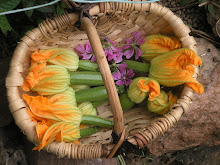Well it's 0730 and Nablus is coming awake: the lovely sound of chirping birds is a surprise, along with the inevitable cars, although I did come across a man training his horse to walk through the streets of the Old City the other day:they are ahead of us, of necessity, about alternative means of transport.
Yesterday was an incredible day, as 4 International volunteers (a Scot, Irishman, and 2 English women) headed out with one of the local volunteers to help pick olives on his family's land. His uncle is ill in hospital and they were his aunt's trees. Here, like in other countries where individualism has'nt completely taken over, they help each other, and there were at least 15 of us out under the hot sun for the day.
It was convivial, it was communal, it was Hardy-esque and it was hard work. As it was in the past, so shall it be in the future, with the peasants and the overlords, but I probably won't see the full transition in my lifetime. We're heading back to the collective, to understanding that our food comes from the ground and the trees, not from hypermarkets, and to a deeper understanding of the abundance of nature. Each olive that we harvested could become another olive tree...
We started at 0830, with old cloths being laid on the ground under the tree, two very old wooden ladders being brought out, and the rest of us gathered round the lower branches. Then we were off: pulling, picking, twisting the small black olives from their spindly branches and letting them drop to the floor. It was a very visual and physical example of the 'low-hanging fruit' principle in the net-energy debate, and one I found most interesting: the higher the fruit (energy) the more difficult it was to harvest and the more energy went into getting at it.....bonjour peak oil! For more on this, check out 'the most important video you'll ever see' on You Tube, it's all there in mathematical equations and is INDISPUTABLE.
Anyway the day was thrilling in so many ways for me, confirming what I instinctively knew that working together is a pleasure, and a job shared is a job halved. There were no slackers, even the children (of whom there were about 6-8) picked up the ones on the floor that bounced off the mats. We stopped at about ten for a fantastic breakfast of falafel, hummous, pita breads, salad, bean stew and a warm tomato and swede bake, washed down with hot herb tea, this one with sage I think.
We were miles from anywhere, having arrived by taxi, but a donkey came and went laden with olives one way and food the other, back and forth to the local village. The donkey was in immaculate condition, and very friendly. As the sun rose we got hotter and hotter, and thirstier and thirstier, but I think the trick here is not to drink too much: already it is a scarce resource, but also it doesn't seem to help: a little, washed around the dry mouth seems to do the trick.
Anyway we picked and picked and the olives dropped and were collected...we stopped mid-afternoon thinking our day's toil was over, and had another fantastic meal of a sort of risotto. Then our friend said, shyly, there are just a few more trees......these were a different variety of olive, green this time, and there is some difference about the method of preparation, but we picked them anyway, finally finishing just as the sun went down, at about 5pm.
We then sat for a good while by the side of the deserted road to await our transport and when it arrived, typically, the locals all insisted that we take the first one and they would wait for the next. We travelled back to our friend's Aunt's house, where we were again plyed with tea and orange juice. Finally all of the people and olives arrived back, and an estimation of the day's work was 400kgs of olives which should yield 112 litres of oil. Most of this is for home consumption, as these are large families, but apparently there is a Government set price of 25 shekels (about 5GBP) per litre, I presume that's for export...
Finally we were taken to visit an olive press, which was fascinating: machines made in Italy (where else!) and huge 100kg bags of olives, leaves and twigs and all, poured into a hopper at one end, up a conveyor belt, washed, crushed, strained and sieved. Finally out of the end came a dark green juice, slightly bitter to the taste, of fresh organic olive oil. WOW! I assume the bitterness are the tanins, which will probably settle/correct (?), but there were the locals with their grimy yellow 30 litre containers, bottling it all up. Good on them: this will be distributed amongst the family and they will not have to pay for another form of cooking or dressing oil, hopefully. I don't know how much they have to pay for the pressing (I will try to find out) but as we were leaving there was another large truck arriving full of sacks from one family's land.
I've seen the future, and it grows in trees...
Saturday, November 6, 2010
Subscribe to:
Post Comments (Atom)

No comments:
Post a Comment